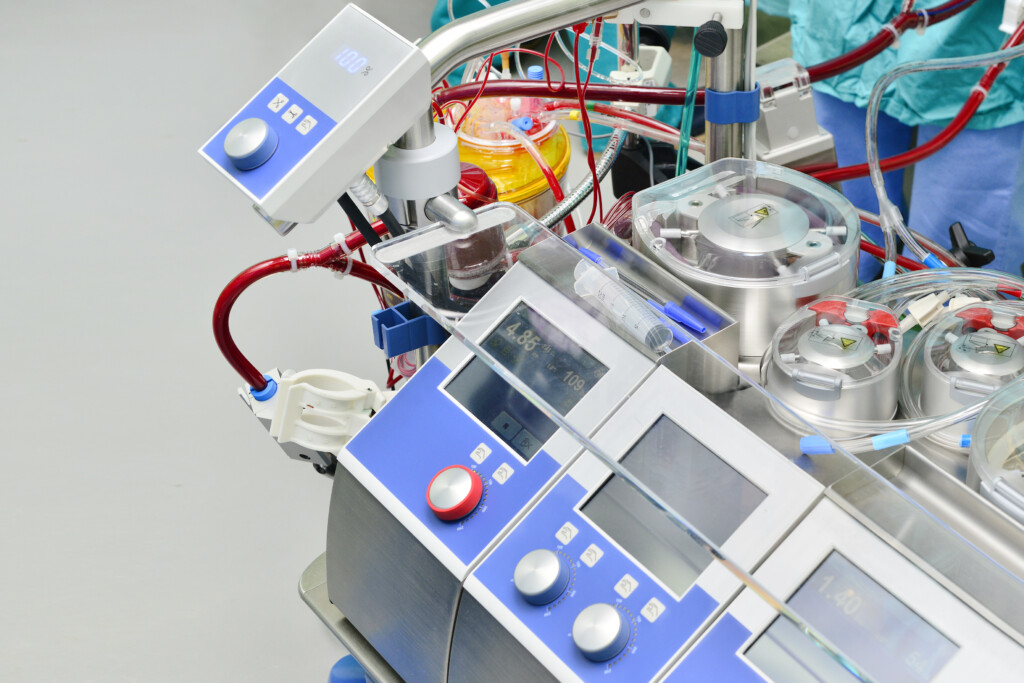At First Baptist Medical Center, cancer patients who haven’t found relief with standard care are turning to heat for relief. The North Dallas medical center is the primary facility in the country using a new treatment that has shown promise in extending life and reducing pain for late-stage cancer patients by heating the body.
Dr. Joseph B. Zwischenberger is the chief medical officer of California-based Verthermia, which developed the proprietary process and administers the treatment at First Baptist in Dallas. In collaboration with Dr. Roger Vertrees and others, Zwischenberger developed the treatment. Called Hyperthermic Extracorporeal Applied Tumor Therapy (HEATT), the procedure uses a heart and lung machine to recirculate the patient’s venous blood and heats it to 42 degrees Celsius (107.6 degrees Fahrenheit), maintaining the whole body temperature for two hours while the patient is under anesthesia. The patient usually spends 2-3 days in a hospital for preparation and recovery and has no lasting side effects.
Zwischenberger is a cardiothoracic, critical care surgeon by trade and was chairman of department of surgery at the University Kentucky for 13 years, where he is still a professor of surgery, pediatrics, and bioengineering with 420 peer-reviewed publications. If controlled closely, hyperthermia has long been known to kill cancer cells without destroying the body’s tissue, but Verthermia’s data says the treatment kills the cells systematically without destroying the body’s tissue.
In a Verthermia trial on ovarian cancer patients whose second-line treatment failed, the treatment significantly extended life of the trial subjects. The average expected life expectancy for the patients was 267 days, but the median life expectancy for those who underwent HEATT increased to 645 days. The max survival rate was 1,140 days or over three years. Expected survival was exceeded in six of ten patients. The results were submitted to the Food and Drug Administration, which cleared the treatment.
“There is a sweet spot that normal tissue can tolerate that cancer cannot,” Zwischenberger says. “The high temperatures kill or injure the cancer cells or put them to sleep and stun them so they cease progression for a period of time.”
Because late-stage cancer often spreads quickly, warming the entire body’s blood can impact the cancer cells metastasizing throughout the body more comprehensively than an hour or two in a sauna. Zwischenberger says they are targeting patients with rapidly growing cancers that are more susceptible to hyperthermia, including ovarian, lung, breast, prostate, and colon cancers. The procedure is not covered by insurance and is currently for cash pay patients.
Because of the nature of the procedure, it isn’t a good depending on the treating physician’s consultation with First Baptists and Verthermia for patients who have experienced recent strokes or heart attacks, uncontrolled blood pressure, organ failure, or sepsis. Verthermia is targeting patients who have unresponsive, advanced-stage cancer and may be seeking alternative or homeopathic treatments. Around 30 patients have been treated by a specialized team at First Baptist Medical Center since the facility began administering the procedure in June. The FDA trials and science indicate additional treatments may provide renewed benefits for some patients.
First Baptist Medical Center is a surgery specialty hospital founded by Dr. John Alexander, a bariatric surgeon who worked with Whole-body hyperthermia in his career and specializes in complex bariatric surgeries requiring a higher level of care than a surgery center could provide. The facility has an emergency room, an intensive care unit, and 14 medical surgery beds. Since originally specializing in bariatric work, the hospital has expanded to include orthopedics, spine, pain, gynecology, and urology procedures. Zwischenberger and Vertrees targeted the hospital for HEATT because of Alexander’s vision, independence, and balance of small size with a high acuity level.
When the interest letter came across the desk of First Baptist’s interim CEO and COO, Aaron Miller, he was intrigued enough to reach out and study the intriguing medicine. He saw potential, which, paired with Alexander’s vision for the facility, made it a good fit for Verthermia and First Baptist. Because it is an independent facility, it was able to move quickly to add cutting-edge treatment to its options and provide the state of the art facilities.
“It isn’t a cure-all, but for the correct patients, the treatment extends life, reduces pain, and provides hope for a longer good quality of life,” Miller says. “For patients who are beat up by and have failed lines of chemotherapy and radiation, this changes the game.”
Author







